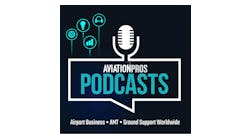The House approved an ambitious overhaul of the nation's pension laws late Friday, hoping to prolong the traditional employer-based pension plans relied upon by millions while also promoting new savings options and protecting the government from future taxpayer bailouts.
The reforms in the bill "represent the most sweeping changes to America's pension laws in more than 30 years," said House Majority Leader John Boehner, R-Ohio.
He said the bill "will ensure that workers and retirees can continue to count on their hard-earned pension benefits."
The 279-131 vote came only hours before the House was expected to begin a five-week summer break.
The legislation now moves to the Senate, which is expected to take it up next week before it departs for its August recess, sending it to the president for his signature.
Opponents, mainly Democrats, said the bill did too little to prevent employers from eliminating their defined-benefit plans and favored some industries over others.
"This tilts the table toward the decisions by companies to terminate or to freeze those plans," said Rep. George Miller, D-Calif.
The legislation, which tightens controls on companies that fall behind in their contributions to defined-benefit plans, gives special repayment breaks to the airline industry and is of particular urgency for several airlines threatening to terminate their plans.
"If passed, the airline provision currently before the Congress will save Northwest Airlines employees' hard-earned pension benefits," the airlines said in a statement.
After the pension vote, the House voted 230-180 and passed its last major legislation before adjourning, a bill coupling a $2.15 increase in the $5.15 hourly minimum wage over three years with lower inheritance taxes on multimillion-dollar estates.
While the wage-tax measure was expected to pass the House, its fate in the Senate, which will take it up next week, was anything but certain.
Senate Democrats and moderate Republicans favor the minimum wage increase, but many conservatives oppose it. And the idea of cutting inheritance taxes lacks the 60 votes needed in the Senate to overcome parliamentary hurdles expected to be erected by Democrats.
The 900-page pension bill, the product of several years of congressional effort, would force employers that have fallen behind in their defined-benefit pension payments to catch up within seven years and close loopholes that have allowed companies to underfund their plans by an estimated $450 billion.
The measure also promotes pension alternatives, such as 401(k) plans, through such steps as automatic enrollment. It would give financial firms greater latitude in steering investors toward high-earning savings programs.
The legislation would give airlines that have frozen their pension plans, Northwest Airlines Corp. and Delta Air Lines, an additional 10 years to meet pension obligations. American and Continental, the only two major airlines with active defined-benefit plans, would get an extra three years.
The fear is that if they abandon their plans - Delta is already seeking to terminate its pilot pensions - it will add billions in deficit to the Pension Benefit Guaranty Corp., which already has amassed a deficit of $22.8 billion.
The PBGC now operates on premiums and interest earnings, but a big jump in the deficit could shift its burden onto taxpayers. The agency takes over benefit payments for terminated plans.
The pension bill aims to strengthen and improve the financial status of single-employer and multiemployer plans covering some 44 million Americans.
It also would give legal certainty to future cash balance and other "hybrid" defined-benefit plans. Such plans have faced lawsuits over charges they discriminate against older workers.
Pension plans that are less than 80 percent funded would not be allowed to increase benefits during contract negotiations. Companies with plans that are at risk or in bankruptcy would be restricted in increasing executive compensation.
The legislation also gives financial firms that manage investment plans rights to offer advice to people with 401(k) and IRA plans. Advocates argued that individual investors today often don't have access to good advice, while critics questioned whether portfolio managers might give biased advice.
The legislation comes at a time when more companies are opting to scale back or eliminate defined-benefit plans. The PBGC says that such plans fell from 114,000 in 1985 to 31,000 in 2004.
The bill, said AARP's David Sloane in a letter to lawmakers, "is designed primarily to protect the government from financial exposure" and "does little to address the erosion of the defined-benefit system."
Rep. Jim McDermott, D-Calif., also pointed out that deep in the bill is a provision that gives defense contractors more time to meet new rules on payments and benefit limitations.
The GOP leaders' decision to bring the pension bill to the House floor came after House-Senate negotiations on a larger bill linking pension overhaul with tax breaks collapsed Thursday night.
House Republicans sought to strip the tax measures from the bill so they could be used, along with the minimum wage hike, as sweeteners to push a permanent estate tax cut through the Senate.
<News stories provided by third parties are not edited by "Site Publication" staff. For suggestions and comments, please click the Contact link at the bottom of this page.





